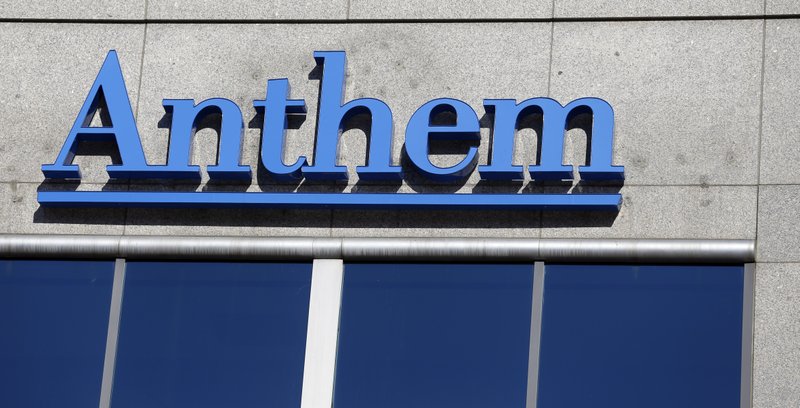NEW YORK -- Anthem is buying rival Cigna in a deal worth $54.2 billion that would create the nation's largest health insurer by enrollment, covering about 53 million U.S patients.
In just three weeks, starting with Aetna's $35 billion bid for Humana Inc. on July 3, the landscape of U.S. health care has been altered in a series of buyouts that could transform five huge U.S. health companies into only three, including UnitedHealth Group.
Larger insurers have negotiating power to squeeze better rates from drug companies and health care providers. But the wave of consolidation could lead to fewer choices for consumers in certain markets. Regulators scrutinizing the two mega-deals will be trying to assess whether these combined companies would have so much power that they could dominate markets and drive already high health-care costs even higher.
Employer-sponsored health insurance is growing slowly, and with the recent overhaul of the nation's health care system, providers are jostling for the largest share of the millions of people who have signed up.
The deal announced Friday was for $48.3 billion to purchase Cigna plus debt that brings the total to $54.2 billion. Shareholders of Cigna, based in Bloomfield, Conn., will receive $103.40 per share in cash and 0.5152 shares of Anthem stock for each of their shares. The companies put the total value at $188 per share.
"We believe that this transaction will allow us to enhance our competitive position and be better positioned to apply the insights and access of a broad network and dedicated local presence to the health care challenges of the increasingly diverse markets, membership, and communities we serve," Joseph R. Swedish, the Anthem chief executive, said in a news release.
During a teleconference Friday, Swedish said that the combined company would "advance affordability, choice, access and quality."
But the merger's effect will take time to be felt by consumers, because insurers have already finalized most of their plans for coverage that starts in January.
Insurance industry consultant Robert Laszewski said insurers are bulking up to negotiate with bigger hospital systems, which are going through their own round of consolidation.
There's no guarantee the Anthem and Cigna deal will be approved. But if they are, health-care facility operators are going to have to contend with bigger, more powerful insurers. Striking deals of their own could improve their negotiating power over medical reimbursements.
"If the insurers are going to have more leverage, hospitals have to have a bigger network," Jason McGorman, an analyst at Bloomberg Intelligence, said in a phone interview.
Laszewski said the resulting "arms race" between hospital groups and insurers does not bode well for consumers.
"It means they have fewer choices and there isn't much incentive for either side to really get more efficient," Laszewski said. "Once they check each other they settle into this detente."
The American Medical Association, which represents U.S. physicians, raised similar concerns Friday and called for close scrutiny by federal regulators.
"To give commercial health insurers virtually unlimited power to exert control over an issue as significant and sensitive as patient health care is bad for patients and not good for the nation's health care system," AMA President Steven Stack said in a statement.
Anthem's combination with Cigna would create a much broader base over which to spread costs and expenses, and the technology investments it makes would be extended over the industry's biggest customer pool.
Data and technology are playing a growing role in monitoring patients and care. At a very basic level, that means things like tracking whether patients are keeping up with their immunizations.
Insurers also are trying to give consumers better information on the cost and quality of the care they buy, based on their coverage. Deductibles and other out-of-pocket costs have been rising for years. That leaves a growing number of consumers with bigger bills to pay before most of their insurance coverage starts, so it can encourage more to shop around.
Anthem has said that a tie-up with Cigna will help build their company's Medicare Advantage enrollment in states like Texas and Florida. Medicare Advantage plans are privately run, fast-growing versions of the federally-funded program for people over age 65 and the disabled.
Anthem, based in Indianapolis, operates Blue Cross plans in 14 states and has a strong presence in offering Medicaid plans. Cigna is best known for offering plans through employers and selling other kinds of insurance like dental and disability.
A spokesman for Anthem said Friday that the company manages no insurance plans in Arkansas. Cigna officials did not respond to a request for comment about an Arkansas presence.
Anthem is the nation's second-largest health insurer, while Cigna ranks fourth in terms of enrollment. Anthem Inc. specializes in selling individual coverage and insurance to workers of small businesses. It also has grown its government business, which includes Medicare, Medicaid and coverage of federal employees.
Health insurance is Cigna Corp.'s main U.S. business, but it also has a growing international segment that Anthem lacks. Much of Cigna's health insurance business involves coverage where the employer pays the claims and then hires Cigna to administer the plan.
The deal is targeted to close in the second half of 2016. Cigna stockholders still need to approve the agreement, and Anthem shareholders need to approve the issuance of shares in the transaction.
Anthem stockholders will own about 67 percent of the combined company, with Cigna shareholders owning approximately 33 percent.
The Anthem board will expand to 14 members. Cigna's President and CEO David Cordani and four independent directors from Cigna's current board will join the nine current members of Anthem's board.
Cordani will serve as president and chief operating officer of the combined company, with Anthem's Swedish as chairman and CEO.
Information for this article was contributed by Tom Murphy, Michelle Chapman and Matthew Perrone of The Associated Press, Chad Bray of The New York Times and Brooke Sutherland of Bloomberg News.
Business on 07/25/2015
